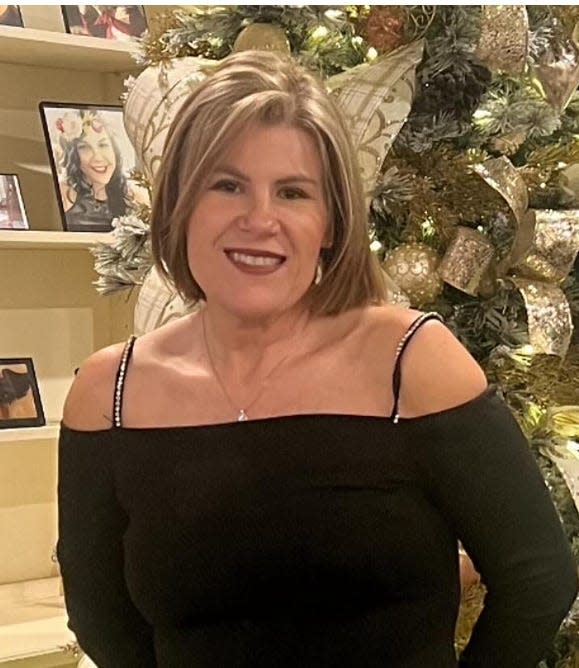Insurers have found a way to get out of paying for medication. Oklahoma lawmakers must put an end to it
Oklahoma state lawmakers are considering a bill that'd make it illegal to defraud charities.
"Isn't that already illegal?!" you might be wondering. Remarkably, the answer is no — at least not for health insurers.
In recent years, some insurers have devised a highly unethical — but not technically illegal — strategy to weasel their way out of paying for beneficiaries' medications. Using a series of convoluted maneuvers, they effectively reclassify those beneficiaries as "uninsured" patients, who are then eligible for financial assistance from medical charities.
It's up to state lawmakers to ban this practice — and preserve charitable assistance for Oklahomans who are genuinely uninsured.
Here's how the strategy, known as an "alternative funding program" (AFP), works. Insurers and some employer-sponsored health plans — such as the ones offered by school districts, unions and large companies — use AFPs to cut their own costs by shifting the financial burden onto charities.
Under AFPs, health plan administrators deliberately remove certain high-cost medicines from their list of covered drugs. Insurers then coax beneficiaries who need those drugs to apply for patient assistance programs — which are charitable entities set up by drug companies and foundations to help people afford medications. In some cases, alternative funding programs encourage beneficiaries to lie about whether they have regular insurance coverage.
These alternative funding programs drain resources away from patients who are actually uninsured — while funneling money back to the insurance companies or employer health plans that should have been providing coverage in the first place. Additionally, forcing patients to spend time applying for coverage through patient assistance programs — simply because their insurer doesn't want to cover a drug — can lead to costly and life-threatening delays in care.
It's a complete violation of patients' trust. Many workers pay thousands of dollars in premiums each year for their health coverage — with the expectation that health plans will actually step in and pay for treatments if they fall seriously ill. Yet increasingly, health plans are balking at holding up their end of the bargain.
In 2022, about 14% of employer-sponsored health plans utilized alternative funding programs, up from 6% in 2021.
Alternative funding programs are themselves an outgrowth of "copay maximizers" — another ethically questionable, but currently legal, tool used by insurers.
Here's how they work. Let's say that a particular cancer treatment recently hit the market. Like most innovative new drugs, it's expensive.
But the biotech company that invented it, or a charitable foundation, offers up to $20,000 a year in financial assistance to cancer patients — to help them cover their copay and coinsurance requirements.
More: Why permanent Daylight Saving Time would harm Oklahomans: Opinion
That financial assistance, when used for copays and coinsurance, would normally be more than enough for patients to reach their annual out-of-pocket maximums, after which point their insurance plans should cover any remaining costs. Most health plans must conform to Affordable Care Act guidelines, which state that individuals cannot be required to spend more than $9,450 out-of-pocket in 2024, and families cannot be required to spend more than $18,900, on "essential health benefits." Prescription drugs are codified as an essential health benefit.
But many insurers and employer-sponsored health plans are skirting this requirement — by simply classifying certain drugs as nonessential.
And health plans aren't categorizing drugs as essential or nonessential at random. They're picking medicines, and setting much higher out-of-pocket requirements, based on which drugs come with patient assistance programs.
On that cancer drug, for instance, a copay maximizer would enable insurers to collect the full $20,000 in assistance available to the patient, instead of $9,450 if the Affordable Care Act limits applied.
Many of the drugs deemed "nonessential" are anything but. One insurer's list of nearly 800 medicines subject to copay maximizers includes therapies for rheumatoid arthritis, COVID-19 and cancer.
Use of maximizers has soared in recent years. Nearly half of commercial health plans used maximizers in 2023, compared to just 6% in 2018.
Fortunately, Oklahoma legislators seem poised to crack down on these unethical, but still legal, practices. The Patients Pay Less Act, sponsored by state Sen. Julie Daniels and Rep. Marcus McEntire, would ban health plans from using copay maximizers or alternative funding programs.
In Oklahoma, patients too often struggle to afford life-saving medicines because of unfair insurer tactics. It's time for our leaders to reform this system.

Jill Sisco is an acromegaly patient, rare disease advocate, and the president of the Acromegaly Community, an emotional and communal support network for people touched by acromegaly.
This article originally appeared on Oklahoman: Oklahoma lawmakers should consider ban of unfair insurer tactics
